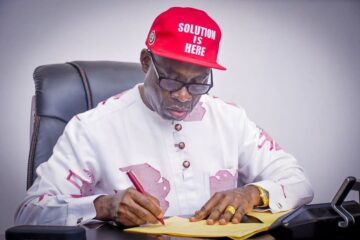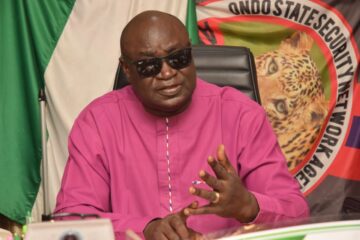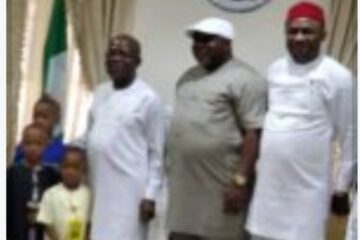CLOSE![]()
In what may be the final debate of the Democratic primary for 2020 election cycle, Joe Biden and Bernie Sanders faced off in a CNN television studio.
USA TODAY
WASHINGTON – It is Day One in a presidential election unlike what anybody had been predicting.
The novel coronavirus has erupted as the singular issue dominating the national debate. The pandemic’s repercussions are pushing the U.S. and global economy toward a slowdown or even a recession, roiling the foundation of President Donald Trump’s reelection campaign. And the Democratic presidential contest, which at the beginning of this month was sparking speculation about a brokered convention, is on the verge of being settled.
Former Vice President Joe Biden and Vermont Sen. Bernie Sanders scrapped and argued Sunday in the 11th and probably final Democratic debate, itself an illustration of the transformation. Because of concern about COVID-19, the forum was moved from a downtown theater in Phoenix to a closed CNN set in Washington, D.C. One of the moderators was replaced because he had been in direct contact with someone who was diagnosed with the virus. The number of participants on stage narrowed to two, compared with seven at the last debate.
At that debate, in Charleston, S.C., Biden was scrambling for a comeback from a disastrous start in the opening contests. Now the task for the former vice president was not a comeback but a consolidation of support that would confirm his standing as the party’s presumptive nominee. He grabbed the debate’s headlines by promising to choose a woman as his running mate.
As a new phase of the presidential campaign begins, here are five ways things have changed, and in a flash:
The only issue: Coronavirus
First and foremost, the coronavirus is a public health crisis on a global scale.
Responding to it also is a governing challenge and a political issue, especially because it has emerged during a presidential election year. It has dwarfed every other concern on voters’ minds, at least for now, and it was the topic that opened and closed the Democratic debate.
Congress acts: Coronavirus relief deal agreed by Pelosi, Trump overwhelmingly passes House as president declares national emergency
Pandemics were not the topic of discussion in the 2016 presidential campaign. But how a prospective leader would handle an unexpected crisis is one of the central questions in every campaign – especially for presidents, who are elected to handle problems no one could have foreseen.
“The way public officials handle crises are make-or-break moments for political careers,” Republican strategist Whit Ayres said in an interview. That’s been the case for governors and presidents handling hurricanes and other big challenges.
Autoplay
Show Thumbnails
Show Captions
George W. Bush’s leadership after the 9/11 terror attacks in 2001 helped propel his reelection in 2004. Jimmy Carter’s struggle to manage the Iranian hostage crisis raised questions about his competence and contributed to losing his bid for a second term in 1980.
How overwhelming is the coronavirus as an issue?
Consider this: It was just seven weeks ago that Trump’s impeachment trial ended with the Senate’s acquittal. That seismic political event is no longer even an important part of the national conversation at a time Americans are wondering if they should venture from their homes or stockpile food.
More: An elbow bump nod to coronavirus, talk of a woman VP and other top moments from Sunday’s debate
The challenger: It’s Joementum
The Democratic nomination is now Joe Biden’s to lose.
After a calamitous start, finishing fourth in the opening Iowa caucuses and fifth in the New Hampshire primary, Biden has staged the most remarkable political comeback in memory. He won the South Carolina primary, then last Tuesday carried the primaries in Michigan, Missouri, Mississippi and Idaho. Sanders won North Dakota. (Biden leads in Washington state, where the results aren’t final.)
Biden is poised for another good night this week as he leads in public polls in the four states holding primaries: Arizona, Florida, Illinois and Ohio. He has been endorsed by a string of vanquished rivals, among them Pete Buttigieg, Amy Klobuchar, Kamala Harris and Tom Steyer. He was endorsed Saturday by the National Education Association, the nation’s largest labor union.
Though he is now on a path to claim the 1,991 convention delegates needed to clinch the nomination, Biden has been an uneven candidate. The health and energy of the 77-year-old candidate will be scrutinized, along with his tendency for verbal gaffes. He’ll need to unite his party, including the liberals, the Latinos and the young people who have been backing Sanders.
Over the weekend, Biden adopted Sanders’ education proposal, which would make public colleges and universities tuition-free for students whose families have annual incomes of less than $125,000. He also embraced Massachusetts Sen. Elizabeth Warren’s plan on bankruptcy, another progressive touchstone.
During the debate, Sanders continued to hammer on their differences, touting the far-reaching Medicare-for-All and Green New Deal initiatives he supports. “People are looking for results, not a revolution,” Biden protested.
But Sanders also promised to “do everything humanly possible to defeat Donald Trump” even if he didn’t win the nomination. Including campaigning for Biden? “Sure,” Sanders said.
The incumbent: Being tested
Trump, 73, is being tested, too.
The president’s early response to warnings about coronavirus was to minimize its severity, assuring Americans that it was under control and saying the virus might simply disappear when warm weather arrived. Factual errors in his Oval Office address to the nation Wednesday required administration officials to offer corrections and clarifications afterward. His message when he addressed reporters on Friday did more to acknowledge the seriousness of the challenge ahead.
CLOSE![]()
President Donald Trump declared a national emergency, a move that would enable federal officials to direct billions of dollars to fighting the virus.
USA TODAY
His address Wednesday sent the stock markets plunging, though his remarks Friday helped revive it. Critics call the president’s general leadership style ill-suited to the moment. He is more comfortable generating partisan cheers at huge rallies of supporters than reassuring nervous Americans in fireside chats.
Indeed, Sanders accused Trump of “blabbering” misinformation and sowing confusion. “We have to shut this president up right now,” he said what asked Sunday at the debate what needed to be done first to deal with coronavirus.
Trump’s tasks ahead will be both substantive and rhetorical, including the need to make testing more widely available and to address a potential shortage of hospital beds and respirators.
“They’re a campaign that, one, talks about their management of the economy, that’s tried to push back on the attacks on them that they’re not prepared, that they’ve been hollowing out the government, that all the things they’ve been doing are right,” Guy Cecil, a veteran strategist and head of Priorities USA, the largest Democratic super-PAC, said in an interview. “And here you have a real-time example of where the prime, key arguments of their campaign are going to be challenged.”
On the other hand, Trump’s standing with his political base continues to be remarkably durable. In a NBC News/Wall Street Journal poll released Sunday, his approval rating for handling the coronavirus was 45% approve-51% disapprove, an echo of his overall approval rating since he took office.
The partisan divide was familiar, too: 81% of Republicans approved of his handling of the crisis; 84% of Democrats disapproved.
“His political support and his political opposition have been so baked in on both sides that they are remarkably resistant to the effect of external events,” Ayres said. He said it was too early to know whether the coronavirus will follow that pattern, or disrupt it.
The campaign: In lockdown
Just how turnout may be affected in the four big states holding primaries Tuesday isn’t known, or whether state election officials will have trouble fielding poll workers to handle those who do show up to vote.
The candidates are calculating how to campaign when voters are being warned against going to places where a lot of people are crowded together, which is pretty much the definition of a political rally.
Trump canceled plans for a rally last week in Chicago, though he would not rule out scheduling others. Biden tried to hold a virtual town hall on Friday, but it was a technical disaster that was initially delayed and then abruptly shut down. “Am I live?” Biden asked at one point.
More: How coronavirus is changing the 2020 presidential campaign for Trump, Biden and Sanders
“Watch the man who tells us that he can lead us through the coronavirus attempt to lead a tele-townhall,” Kayleigh McEnany, national press secretary for the Trump campaign, said in a tweet that posted a clip of the garbled video. “Sleepy Joe at his finest,” she wrote, repeating Trump’s derisive nickname and adding three laughing emojis.
Officials in both parties were beginning to consider what to do if it seems unwise to convene the national political conventions next summer. Those are events that traditionally energize partisan footsoldiers, help define the priorities of the presidential contenders, and at least for the party out of power introduce the vice presidential nominee to the nation.
The economy: History’s lesson
History is pretty clear on this. Presidents’ prospects for a second term rise or fall based on how voters believe the economy is doing.
In modern times, no president has lost reelection when Americans saw the economy as good, including Ronald Reagan in 1984, Bill Clinton in 1996, George W. Bush in 2004 and Barack Obama in 2012. No president has won reelection when Americans saw the economy as bad, including Carter in 1980 and George H.W. Bush in 1992. (The economy was in a recovery in 1992, but surveys showed voters were slow to believe that.)
Trump in particular has seen the nation’s remarkable economic engine as his ride to a second term in the White House, one reason he has been so focused on the ups and downs of the stock markets. Since his inauguration, many Americans have said interviews and polls that they don’t like the president’s provocative tweets, but they do like the growth they see in their 401(k) retirement accounts on his watch.
If the economy takes a dive, the risks for the president are likely to be existential.
Of course, there are another 7½ months until Election Day. A campaign that has been redefined over the past few weeks could be redefined again as the path of the pandemic unfolds and if new crises emerge. Campaigns, and voters’ ultimate judgments, are unpredictable.
That said, this is a new and transformed presidential race.
On Day One.
Read or Share this story: https://www.usatoday.com/story/news/politics/elections/2020/03/15/trump-v-biden-day-one-election-now-redefined-coronavirus/5030437002/






… [Trackback]
[…] Find More on on that Topic: famousreporters.com/day-one-of-a-campaign-transformed-biden-the-likely-nominee-coronavirus-the-dominant-issue/ […]
… [Trackback]
[…] Find More Information here on that Topic: famousreporters.com/day-one-of-a-campaign-transformed-biden-the-likely-nominee-coronavirus-the-dominant-issue/ […]
… [Trackback]
[…] Find More on that Topic: famousreporters.com/day-one-of-a-campaign-transformed-biden-the-likely-nominee-coronavirus-the-dominant-issue/ […]
… [Trackback]
[…] Information on that Topic: famousreporters.com/day-one-of-a-campaign-transformed-biden-the-likely-nominee-coronavirus-the-dominant-issue/ […]
… [Trackback]
[…] There you will find 68350 more Info on that Topic: famousreporters.com/day-one-of-a-campaign-transformed-biden-the-likely-nominee-coronavirus-the-dominant-issue/ […]
… [Trackback]
[…] Find More on on that Topic: famousreporters.com/day-one-of-a-campaign-transformed-biden-the-likely-nominee-coronavirus-the-dominant-issue/ […]
… [Trackback]
[…] There you can find 13535 additional Info to that Topic: famousreporters.com/day-one-of-a-campaign-transformed-biden-the-likely-nominee-coronavirus-the-dominant-issue/ […]
… [Trackback]
[…] Read More Information here on that Topic: famousreporters.com/day-one-of-a-campaign-transformed-biden-the-likely-nominee-coronavirus-the-dominant-issue/ […]
… [Trackback]
[…] Read More on that Topic: famousreporters.com/day-one-of-a-campaign-transformed-biden-the-likely-nominee-coronavirus-the-dominant-issue/ […]
… [Trackback]
[…] There you can find 34873 more Information on that Topic: famousreporters.com/day-one-of-a-campaign-transformed-biden-the-likely-nominee-coronavirus-the-dominant-issue/ […]
… [Trackback]
[…] Read More Info here on that Topic: famousreporters.com/day-one-of-a-campaign-transformed-biden-the-likely-nominee-coronavirus-the-dominant-issue/ […]
… [Trackback]
[…] Find More on on that Topic: famousreporters.com/day-one-of-a-campaign-transformed-biden-the-likely-nominee-coronavirus-the-dominant-issue/ […]
… [Trackback]
[…] Information on that Topic: famousreporters.com/day-one-of-a-campaign-transformed-biden-the-likely-nominee-coronavirus-the-dominant-issue/ […]
… [Trackback]
[…] Read More Information here on that Topic: famousreporters.com/day-one-of-a-campaign-transformed-biden-the-likely-nominee-coronavirus-the-dominant-issue/ […]
… [Trackback]
[…] Find More on to that Topic: famousreporters.com/day-one-of-a-campaign-transformed-biden-the-likely-nominee-coronavirus-the-dominant-issue/ […]
… [Trackback]
[…] Find More here to that Topic: famousreporters.com/day-one-of-a-campaign-transformed-biden-the-likely-nominee-coronavirus-the-dominant-issue/ […]
… [Trackback]
[…] Find More here on that Topic: famousreporters.com/day-one-of-a-campaign-transformed-biden-the-likely-nominee-coronavirus-the-dominant-issue/ […]
… [Trackback]
[…] There you will find 43316 additional Information to that Topic: famousreporters.com/day-one-of-a-campaign-transformed-biden-the-likely-nominee-coronavirus-the-dominant-issue/ […]
… [Trackback]
[…] Find More on to that Topic: famousreporters.com/day-one-of-a-campaign-transformed-biden-the-likely-nominee-coronavirus-the-dominant-issue/ […]
… [Trackback]
[…] Find More on to that Topic: famousreporters.com/day-one-of-a-campaign-transformed-biden-the-likely-nominee-coronavirus-the-dominant-issue/ […]
… [Trackback]
[…] Information on that Topic: famousreporters.com/day-one-of-a-campaign-transformed-biden-the-likely-nominee-coronavirus-the-dominant-issue/ […]
… [Trackback]
[…] Find More on on that Topic: famousreporters.com/day-one-of-a-campaign-transformed-biden-the-likely-nominee-coronavirus-the-dominant-issue/ […]
… [Trackback]
[…] Find More on that Topic: famousreporters.com/day-one-of-a-campaign-transformed-biden-the-likely-nominee-coronavirus-the-dominant-issue/ […]
… [Trackback]
[…] Find More Info here on that Topic: famousreporters.com/day-one-of-a-campaign-transformed-biden-the-likely-nominee-coronavirus-the-dominant-issue/ […]
… [Trackback]
[…] There you will find 17114 additional Information on that Topic: famousreporters.com/day-one-of-a-campaign-transformed-biden-the-likely-nominee-coronavirus-the-dominant-issue/ […]
… [Trackback]
[…] Read More Info here on that Topic: famousreporters.com/day-one-of-a-campaign-transformed-biden-the-likely-nominee-coronavirus-the-dominant-issue/ […]
… [Trackback]
[…] Read More Info here to that Topic: famousreporters.com/day-one-of-a-campaign-transformed-biden-the-likely-nominee-coronavirus-the-dominant-issue/ […]